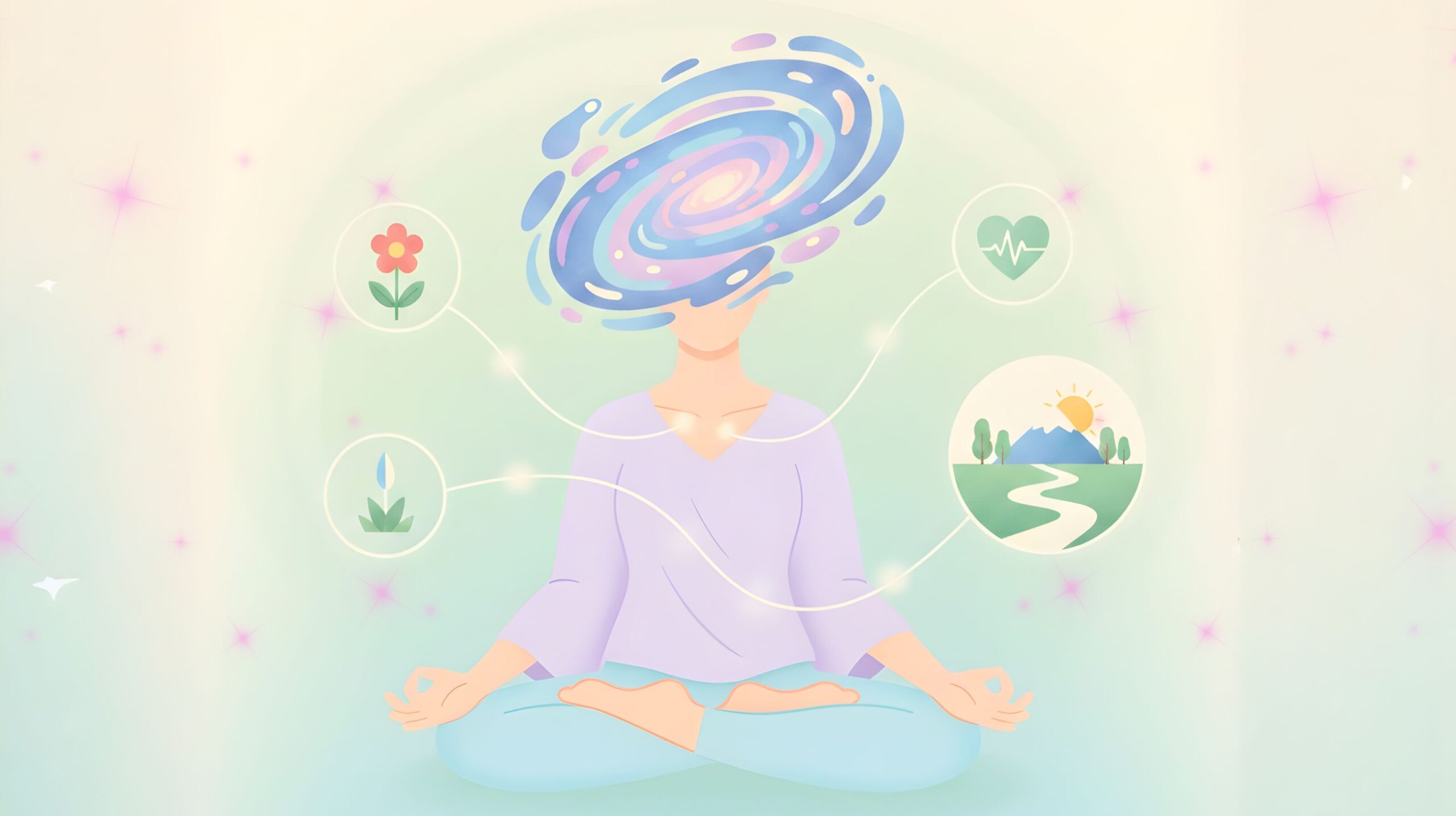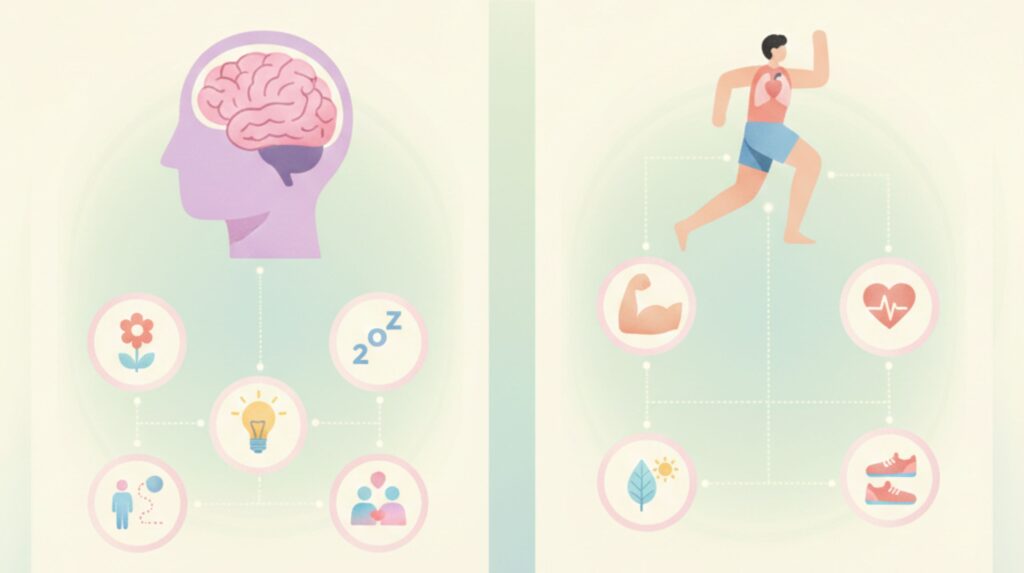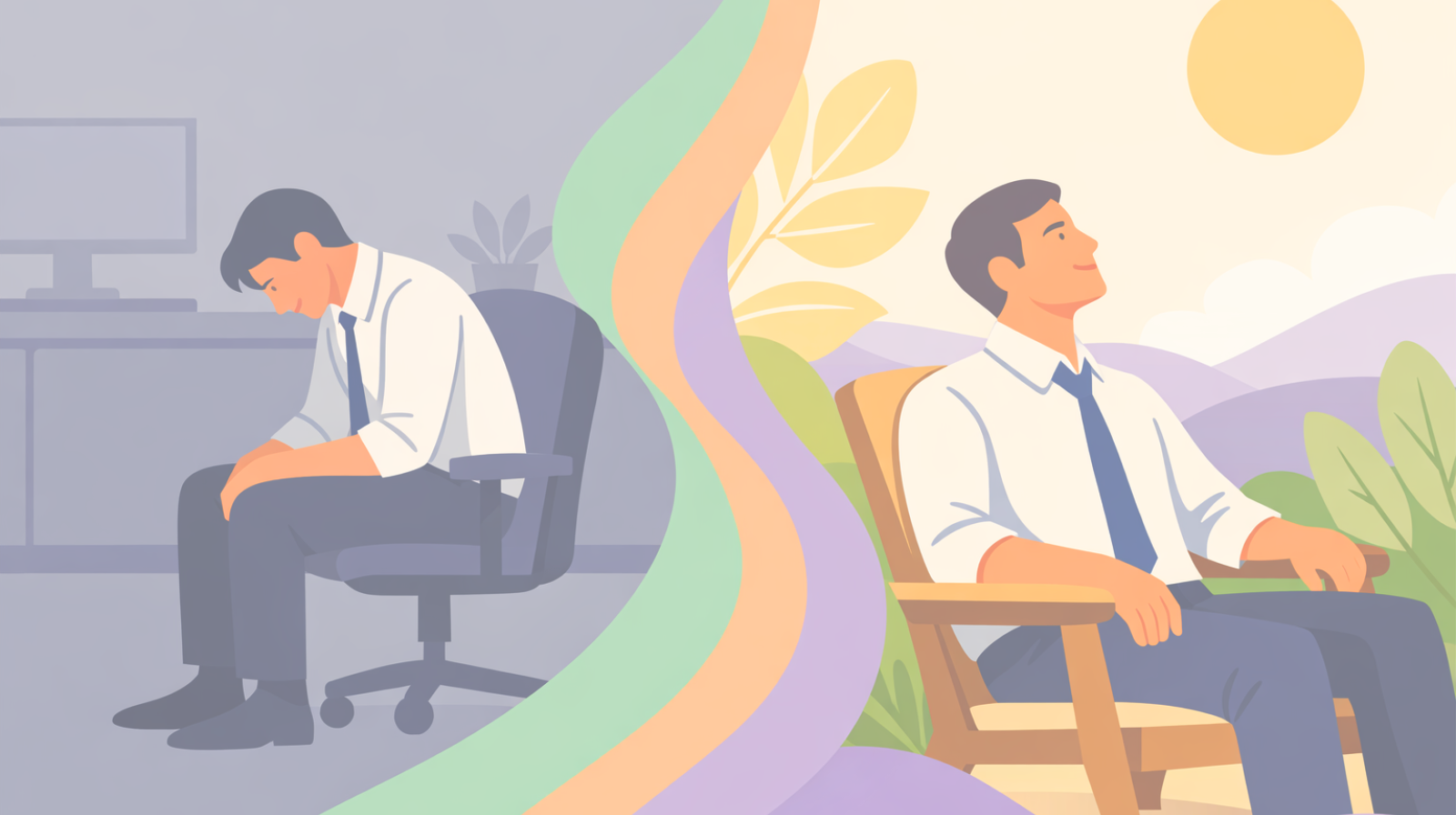
Does Psychedelic Use Improve Physical Health? Study Explains
Here’s the deal: Psychedelic use is on the rise. Scientists have observed a “resurgent interest” in psychedelics as a holistic form of treatment for all manner of mental disorders. We don’t need to crack open a textbook to know that psychedelics can be an expansive, illuminating experience. But are there physical health benefits on the table, too?
According to some research, yes, potentially. Take this study, which in 2021 examined survey data from nearly 200,000 individuals who had experience with psychedelics. The authors concluded that “Classic psychedelics may be beneficial to physical health,” said Simonsson & colleagues.
In fairness, that doesn’t tell the whole story. So let’s take a closer look at their work to see whether taking psychedelics can actually benefit you in body, soul, and everything in between.
What the Study Says
Originally published in the Journal of Psychopharmacology, Simonsson et al. set out to, “investigate the associations between classic psychedelic use and markers of physical health.”

We already know the authors believe there’s a link. But before we dive deeper, we need to specify exactly what classic psychedelics are. According to the researchers, this descriptor encompasses tryptamines, lysergamides, and phenethylamines, umbrella terms which include, among others, familiar substances like:
- DMT
- Ayahuasca
- Psilocybin
- LSD
- Mescaline
What The Authors Did
To that end, Simonsson & colleagues amassed data from the U.S. National Survey on Drug Use & Health between 2015 and 2018. To focus their aim, the researchers included people who:
- Were over the age of 18
- Reported having tried a classic psychedelic at least once
Respondents who matched their criteria then had their survey replies crossed with three primary markers of physical health:
- Overall health
- Body-mass index (BMI)
- Incidence of cancer or a heart condition within the past 12 months
One big thing: As these data come from a survey, the respondents self-reported their quality of overall health, rather than being assessed by the researchers according to empirical criteria.
Key Findings
The authors highlighted several important findings in their research. While they couldn’t establish a causative link between psychedelic use and improved physical health—we’ll discuss other limitations in a moment—there appears to be a significant correlation.
- They estimated that nearly 34 million American adults have used a classic psychedelic at some point.
- Psychedelic use was associated with significantly higher odds of greater self-reported health.
- Psychedelic users were also significantly less likely to be overweight or obese.
- People who had used psychedelics were less likely to have had a cancer diagnosis or heart issue in the previous 12 months.
Put simply: Simonsson et al. showed, on some level, a compelling relationship between trying psychedelics and being in better physical health. Does one necessarily cause the other? No, and there are limitations here worth discussing.
Limitations
Simonsson & colleagues’ work certainly paints a rosy picture for psychedelics as an all-around health and wellness booster. However, we do need to acknowledge the limitations of this paper, including those highlighted by the authors themselves:
- The study design itself “limits causal inference,” meaning we can’t say that classic psychedelics themselves improve physical health.
- The data collected did not contain specifics on type, frequency, or context for psychedelic use.
- The authors couldn’t rule out whether psychedelics caused any physical or mental harm.
- The authors could not control for anti-inflammatory drug use, which they believed to be relevant to respondents’ desire to try psychedelics.
- BMI, as one of the three measured health metrics, has several flaws, including an inability to distinguish body composition (i.e, how much body fat someone has).
Many of these hiccups are common for scientific studies like this, since the data is self-reported. The first limitation, regarding correlation and causation, is worth taking a closer look at.
The Importance of Correlation vs. Causation
You can understand the difference between correlation and causation like this: In the summer, ice cream sales and shark attacks are significantly correlated – but they don’t cause each other.

Based on this data, psychedelics and physical health have a similar relationship. There are other plausible explanations for psychedelic users reporting better overall health than the average person:
- Trying psychedelics requires an open mind. That same intellectual curiosity may also help people explore new hobbies, interests, or activities, making them more physically active.
- Psychedelics are deeply rooted in holistic medicine, which also prioritizes immersion in nature, rather than a sedentary, indoor lifestyle.
- Psychedelics help the brain form new neural pathways, expanding thought processes and widening perspective, which may lead people to take their health more seriously.
- Psychedelics can be expensive, especially if you partake in a guided experience or retreat. Those with financial means also have access to higher-quality healthcare.
The big picture: While compelling, we can’t say that psychedelics directly improve your physical health. However, there may be circumstantial or downstream effects that contribute to better health.
Health Benefits of Classic Psychedelics
As part of their reasoning for conducting this study, Simonsson & colleagues spotlighted some benefits of psychedelics with empirical support. For example, psychedelics have been shown to…
- Be effective in treating mental health disorders like depression or anxiety.
- Have anti-inflammatory properties.
- Relatively low risk when administered appropriately and under qualified supervision.
When it comes to psychedelics, a little bit of guidance can go a long way. There’s a substantial difference between taking a psychedelic drug at random and without supervision, and doing so under the care and stewardship of a bonafide expert.
The staff at Beckley Retreats is made up of just that—experts with decades of experience in their respective fields, ranging from palliative medicine to psychotherapy and shamanism. If you’re thinking about embarking on a psychedelic journey, Beckley can help you remain safe and maximize the mental, emotional, and, yes, physical benefits.
Disclaimer: This article is for educational purposes only and is not intended as medical or psychiatric advice, diagnosis, or treatment. Controlled substances should only be used under the guidance of qualified professionals in approved and legal settings. Always consult a licensed healthcare provider before making any medical or mental-health decisions. If you’re in crisis or experiencing thoughts of self-harm, seek immediate help from a trusted professional or contact emergency services.
Sources
- Davis, A. K., Bates, M., Lund, E. M., Sepeda, N. D., Levin, A. W., Armstrong, S. B., … Yehuda, R. (2024). The Epidemiology of Psychedelic Use Among United States Military Veterans. Journal of Psychoactive Drugs, 57(4), 399–412.
- Simonsson O, Sexton JD, Hendricks PS. Associations between lifetime classic psychedelic use and markers of physical health. Journal of Psychopharmacology. 2021;35(4):447-452.
- Aday JS, Mitzkovitz CM, Bloesch EK, Davoli CC, Davis AK. Long-term effects of psychedelic drugs: A systematic review. Neurosci Biobehav Rev. 2020 Jun;113:179-189. doi: 10.1016/j.neubiorev.2020.03.017. Epub 2020 Mar 16. PMID: 32194129.
- Flanagan TW, Nichols CD. Psychedelics as anti-inflammatory agents. Int Rev Psychiatry. 2018 Aug;30(4):363-375. doi: 10.1080/09540261.2018.1481827. Epub 2018 Aug 13. PMID: 30102081.
- Rucker JJH, Iliff J, Nutt DJ. Psychiatry & the psychedelic drugs. Past, present & future. Neuropharmacology. 2018 Nov;142:200-218. doi: 10.1016/j.neuropharm.2017.12.040. Epub 2017 Dec 25. PMID: 29284138.


